
- Mode2 Portable AC Charger
- Mode3 Ev Charging Cable
- Home AC Charger
- Commercial AC Charger
- Home DC Fast Charging Station
- Commercial DC Fast Charging Stat
- V2X Charger
- EV Charging Station Power Module
- Ev Charging Plugs
- Ev Charging Socket
- EV Charging Accessories
- On Borad Charger
Latest news
- Nissan Unveils Bidirectional Onboard C
- Milence Launches First Charging Hub in
- Norway Likely Delaying Electric Van De
- India Unveils Five-Year Plan to Introd
- Hyundai Collaborates with Canadian Bat
- LG Energy Solution to Provide Batterie
Contact us
- ADD: 4-9-4 Jinkai International No. 1230 Jinkai RD, North of Chongqing China, 401122
- TEL: 0086-23-63425659
- FAX: 0086-23-63013491
- E-mail: bake@senkumachinery.com


200A ev charging sockets ccs1
- Rated: 200A DC and 60A AC
- Certificate: UL
- IP Level: TYPE 3R
- Mechanical lifespan: Plug and unplug ≥10000 times
- Product description: By incorporating the J1772 design, the CCS1 ev charging sockets remain compatible with older vehicles and AC charging, while also supporting DC fast charging for modern EVs.
Product introduction
UL J1772 200A Ev Charging Sockets CCS1
By incorporating the J1772 design, the CCS1 ev charging sockets remain compatible with older vehicles and AC charging, while also supporting DC fast charging for modern EVs.
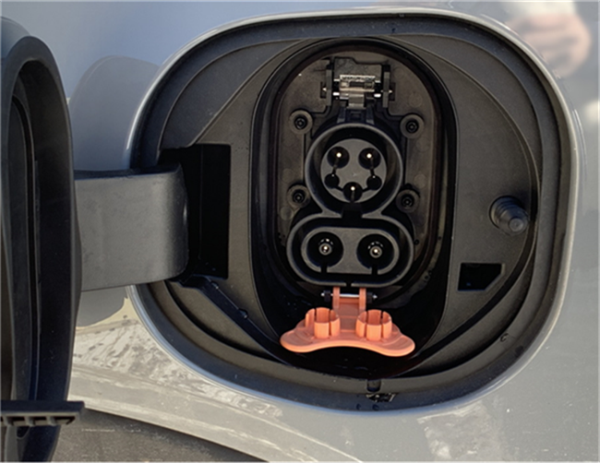
Electric Performance.
Rated current
60A AC and 200A DC
Operate voltage
110V / 240V AC and 1000V DC
Insulation resistance
>2000MΩ (DC1000V)
Terminal temperature rise.
<50K
Mechanical life
no-load plug in / plug out > 10000 times
Materia
Thermoplastic, Flame retardant grade UL94-0;
Pin: Cooper alloy,sliver + thermoplastic on the top
Operation Temp.
-30℃ ~ + 50℃
IP protection class
TYPE 3R
Standard
UL2251 / SEA J1772
Certifications
UL / TUV
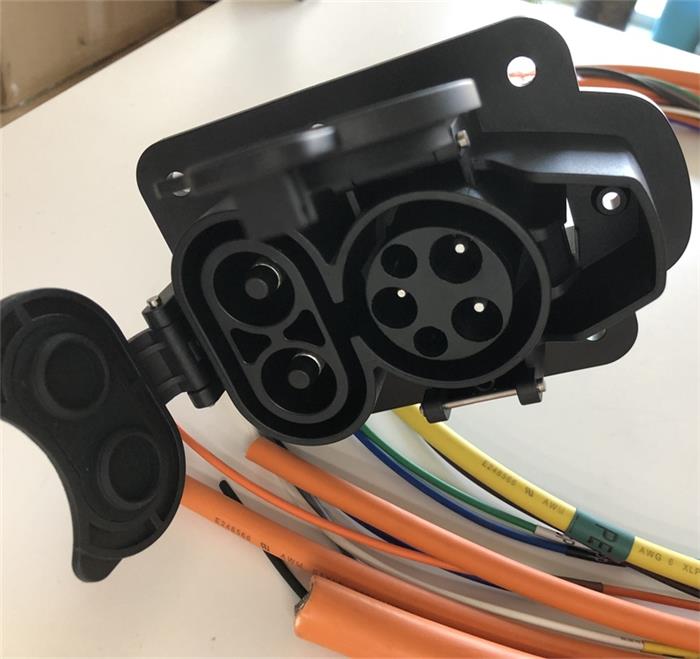
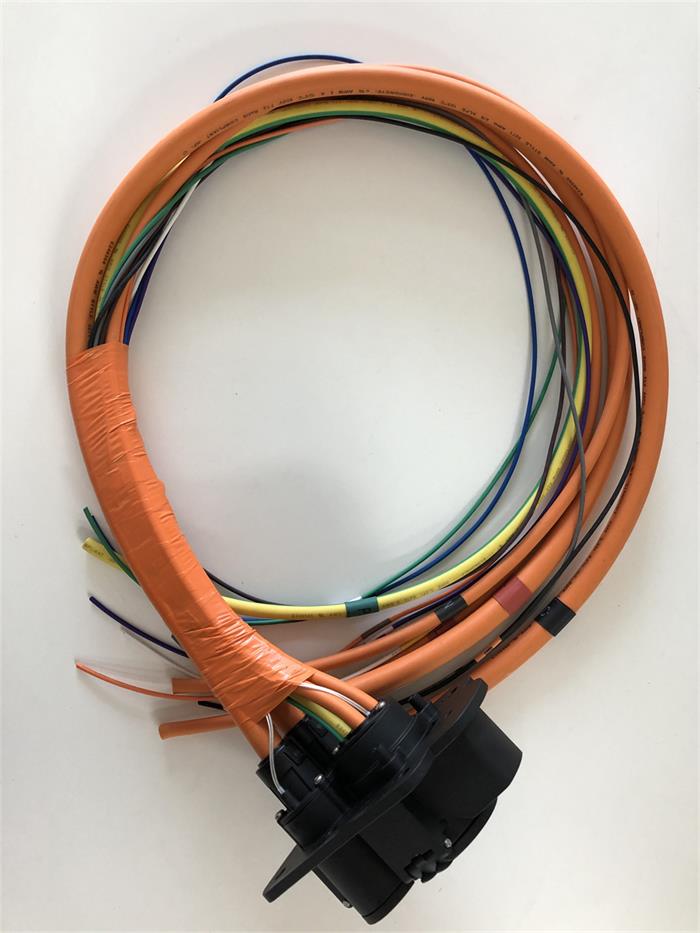
J1772 vs. CCS1: Connector and Pin Layout
The connector and pin layouts of the J1772 type 1 and CCS1 are specifically engineered to support their respective charging capabilities, ensuring both safe and efficient operation.
The J1772 connector uses a five-pin layout:
Power Pins (2): These pins supply electricity—one for the line (L) and the other for neutral (N).
Ground Pin (1): This pin provides grounding, serving as a safety measure to direct any fault current away from the vehicle and charging station.
Communication Pins (2): These enable the vehicle and charging station to communicate. The control pilot (CP) detects when the connector is plugged into the vehicle, while the proximity pilot (PP) identifies the type of cable and connector being used. Together, these pins manage power levels, ensure safe operation, and prevent disconnection during charging.
The CCS1 connector builds on the J1772 design, retaining its five-pin configuration and adding two additional large DC pins.
J1772 Pins: The upper section of the CCS1 ev charging sockets includes the same five pins as the J1772, which handle AC charging and communication between the vehicle and the charging station.
DC Pins (2): These larger pins, located beneath the J1772 pins, enable high-current DC fast charging, drastically reducing charging time at fast charging stations.
In summary, the pin and connector configurations of both J1772 and CCS1 are tailored to support different charging needs while ensuring safety, communication, and power delivery. By incorporating the J1772 design, the EV charging sockets ccs1 remains compatible with older vehicles and AC charging, while also supporting DC fast charging for modern EVs.
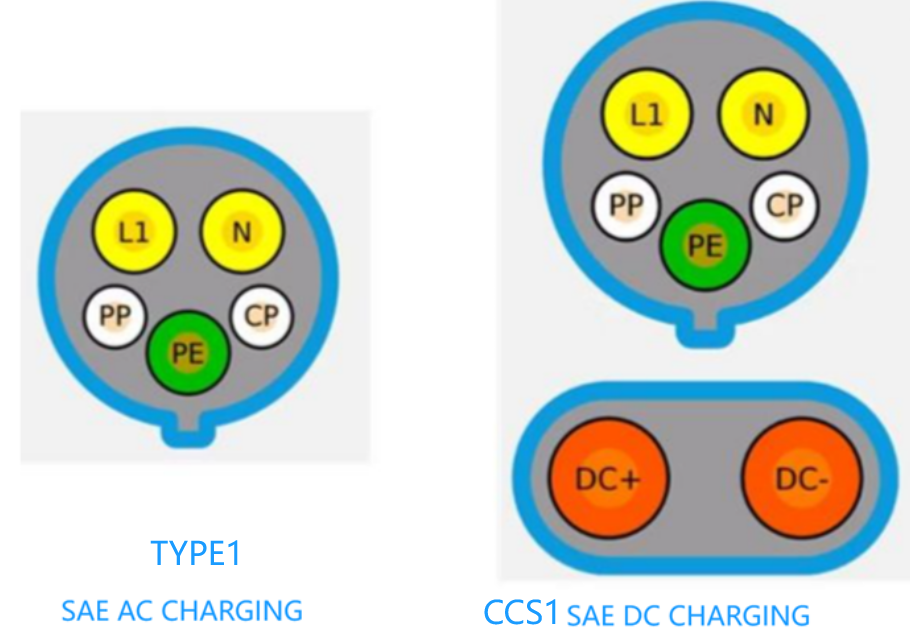
Hot tags: #ccs1 electric car charging sockets #manufacturers #factories

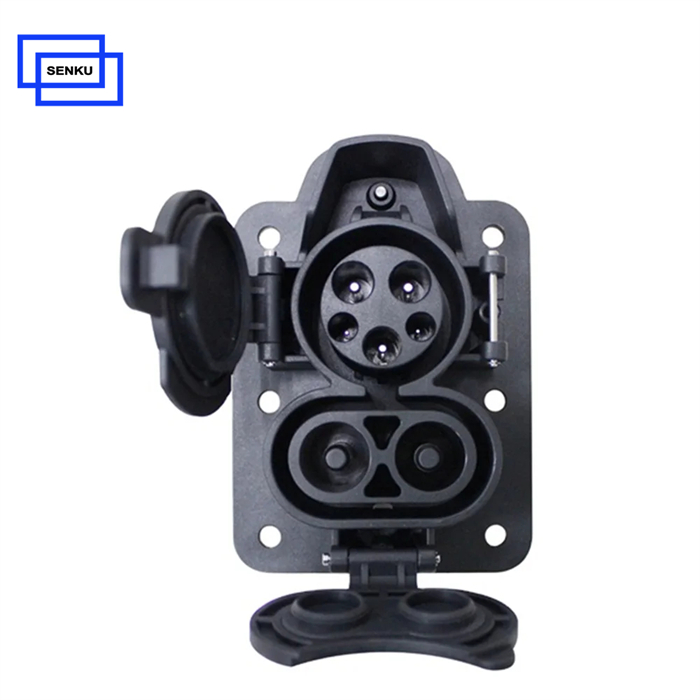
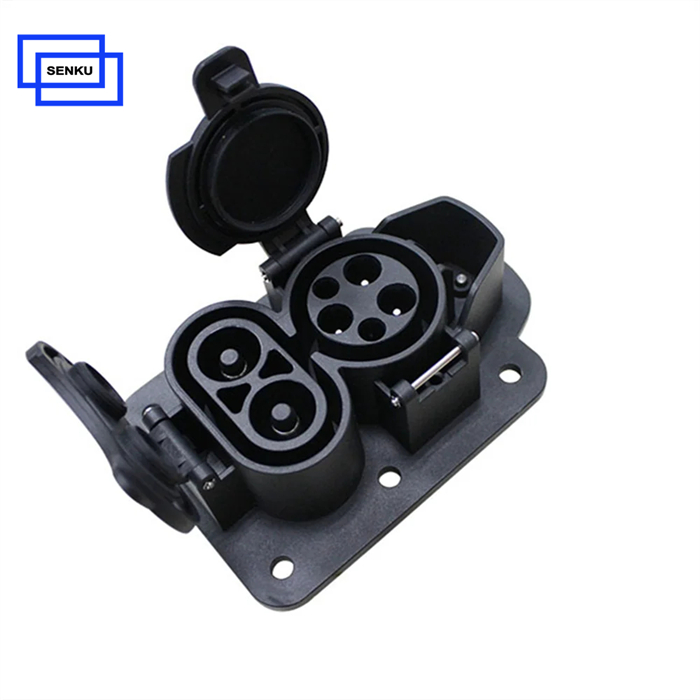



 Senku ,Bake
Senku ,Bake Senku
Senku